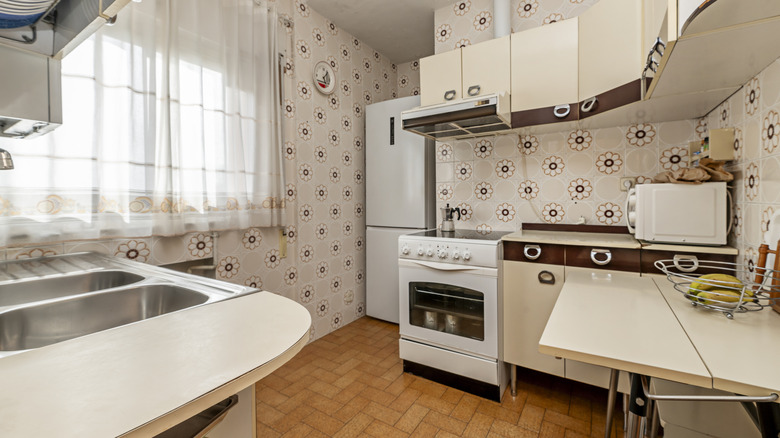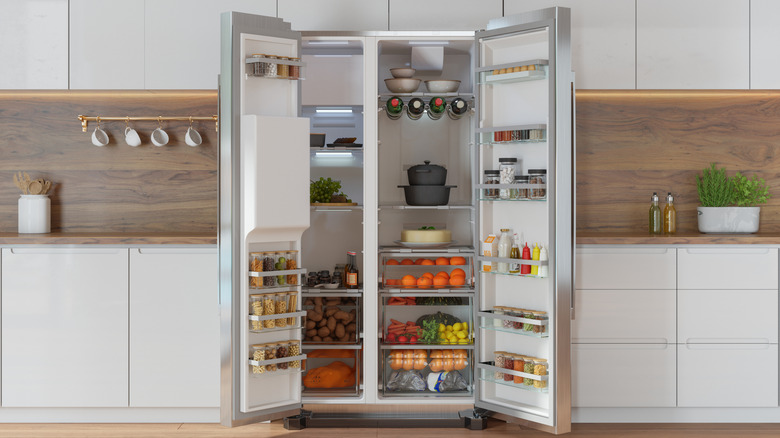The Old Kitchen Appliance That's Costing You Big On Your Energy Bill
The cost of electricity in the United States has been rising in recent years. From July 2024 to July 2025, energy bills increased in 44 states, according to a report from SaveOnEnergy. This has led many Americans to find ways to cut costs, including investing in newer appliances. Old refrigerators can be the most frightening energy vampires in your home. They run all day and night and may be responsible for up to 15% of your monthly energy bill.
Sure, your old fridge has lasted a long time, but the amount of power it takes to run is likely costing you more than it should be. Older model refrigerators that are around 15 cubic feet can cost over $10 a month to run. This may seem like a small number on its own, but it's a large chunk of your energy bill breakdown. Many more recent refrigerator models come with an Energy Star rating, which means the appliance meets specific criteria of low energy use and high performance. An Energy Star-rated fridge of similar size costs less than half of what an older model does per month.
More benefits of a newer fridge
Forking over a large amount of money for a new refrigerator just to save a few dollars per month isn't on most people's priority list until the old one gives out. However, that old appliance is likely costing you in other areas; a newer fridge can potentially yield savings on more than just your electric bill.
For example, investing in an up-to-date fridge can save you money on your groceries as well. Many newer models come with built-in technology designed to maintain proper temperature, humidity, and air quality to keep your food fresh longer. Considering how high grocery prices are changing the way we shop and that up to 40% of the U.S. food supply goes to waste each year, per USDA data, saving your produce from being tossed in the trash with the help of your fridge is a huge benefit.
Thoughtfully purchasing a newer fridge will also provide you with the opportunity to take your kitchen and grocery habits into account. A larger freezer space may allow you to buy items in bulk when they're on sale or meal prep large batches of food that you didn't previously have the space for. Food staying fresh longer may lead you to purchasing more fresh fruits and vegetables because you won't be frustrated with fast spoilage. Keeping items for as long as they're working is usually a good option for sustainability, but when it's impacting your living costs and there's a more efficient option, it might be time to make the change.

